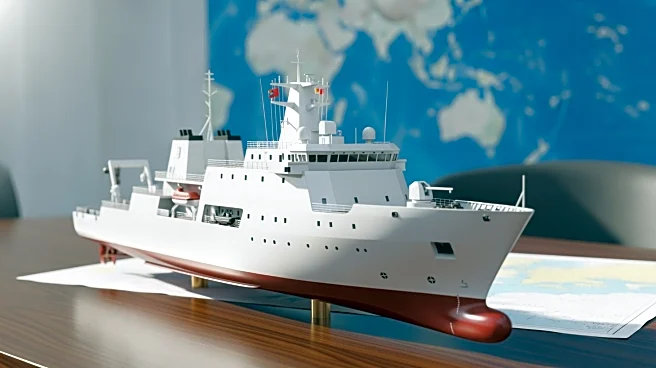What's Happening?
The remains of Eliyahu Margalit, a resident of Nir Oz, have been identified and returned to Israel. Margalit was killed on October 7 and subsequently taken to Gaza. The identification was confirmed by
the Israel Defense Forces (IDF) after the remains were handed over by Hamas. This development follows the release of other hostages and remains as part of ongoing negotiations and exchanges between Israel and Hamas. The Hostages and Missing Families Forum has been actively involved in these efforts, working alongside international organizations such as the International Committee of the Red Cross (ICRC) to facilitate the return of hostages and remains.
Why It's Important?
The identification and return of Eliyahu Margalit's remains highlight the ongoing humanitarian and diplomatic efforts to resolve hostage situations in conflict zones. This event underscores the complex dynamics between Israel and Hamas, where negotiations often involve international mediators. The return of remains and hostages is a sensitive issue that affects the families involved and has broader implications for regional stability and peace efforts. The involvement of organizations like the ICRC emphasizes the importance of international cooperation in addressing humanitarian crises.
What's Next?
The return of Eliyahu Margalit's remains may lead to further negotiations between Israel and Hamas regarding other hostages and missing persons. The ongoing dialogue could potentially pave the way for more comprehensive peace talks or agreements. Stakeholders, including international organizations and governments, are likely to continue their involvement to ensure the safe return of all hostages and to support conflict resolution efforts in the region.
Beyond the Headlines
This situation raises ethical and legal questions about the treatment of hostages and the responsibilities of conflicting parties under international law. The return of remains also highlights the emotional and psychological impact on families and communities, emphasizing the need for support systems for those affected by such conflicts.








